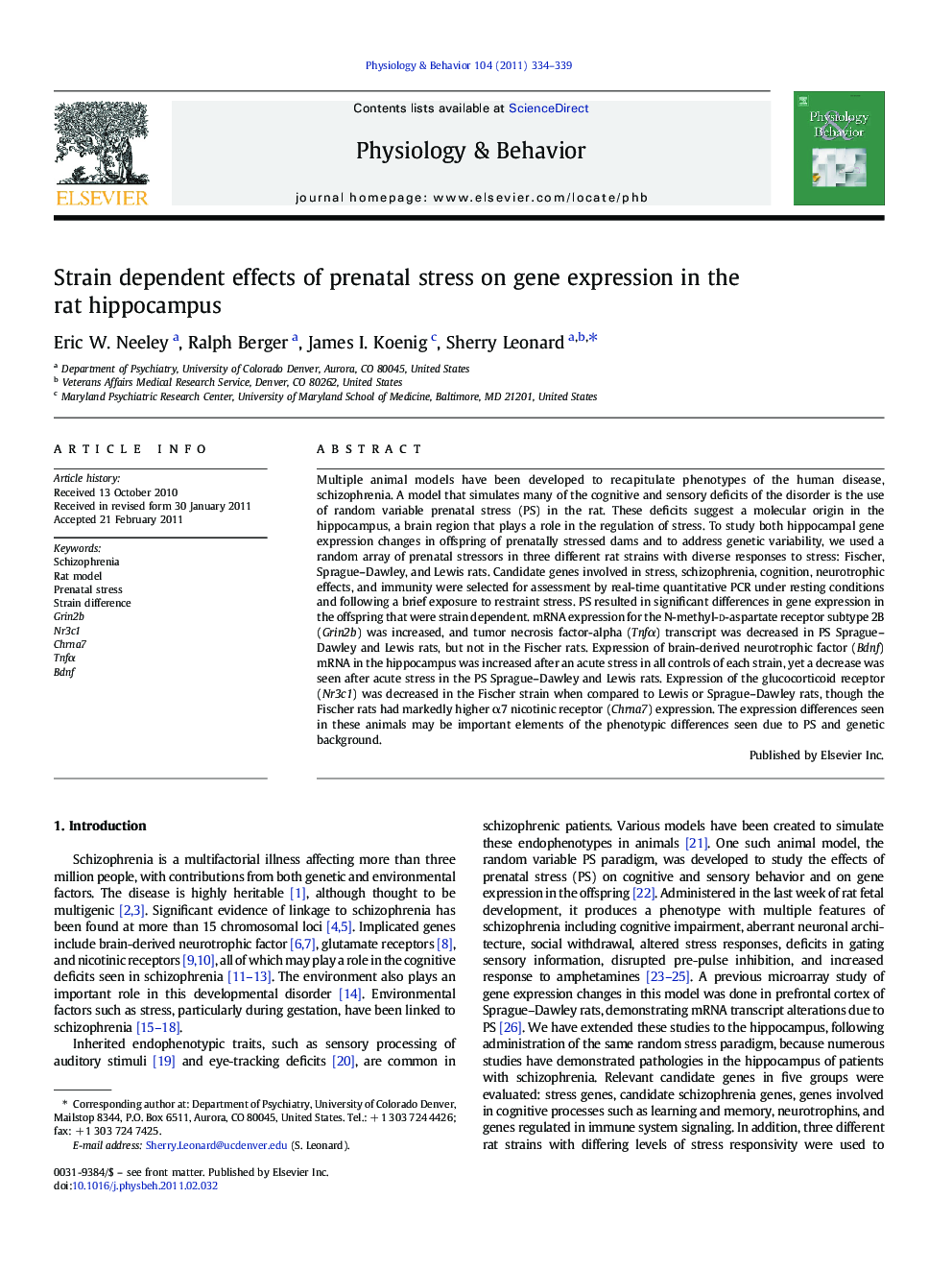| Article ID | Journal | Published Year | Pages | File Type |
|---|---|---|---|---|
| 2844559 | Physiology & Behavior | 2011 | 6 Pages |
Multiple animal models have been developed to recapitulate phenotypes of the human disease, schizophrenia. A model that simulates many of the cognitive and sensory deficits of the disorder is the use of random variable prenatal stress (PS) in the rat. These deficits suggest a molecular origin in the hippocampus, a brain region that plays a role in the regulation of stress. To study both hippocampal gene expression changes in offspring of prenatally stressed dams and to address genetic variability, we used a random array of prenatal stressors in three different rat strains with diverse responses to stress: Fischer, Sprague–Dawley, and Lewis rats. Candidate genes involved in stress, schizophrenia, cognition, neurotrophic effects, and immunity were selected for assessment by real-time quantitative PCR under resting conditions and following a brief exposure to restraint stress. PS resulted in significant differences in gene expression in the offspring that were strain dependent. mRNA expression for the N-methyl-d-aspartate receptor subtype 2B (Grin2b) was increased, and tumor necrosis factor-alpha (Tnfα) transcript was decreased in PS Sprague–Dawley and Lewis rats, but not in the Fischer rats. Expression of brain-derived neurotrophic factor (Bdnf) mRNA in the hippocampus was increased after an acute stress in all controls of each strain, yet a decrease was seen after acute stress in the PS Sprague–Dawley and Lewis rats. Expression of the glucocorticoid receptor (Nr3c1) was decreased in the Fischer strain when compared to Lewis or Sprague–Dawley rats, though the Fischer rats had markedly higher α7 nicotinic receptor (Chrna7) expression. The expression differences seen in these animals may be important elements of the phenotypic differences seen due to PS and genetic background.
Research Highlights► Six stressors were administered in the last week of gestation in three rat strains. ► Nr3c1 and Chrna7 were differentially expressed across strains. ► Grin2b, Tnfα and Bdnf were affected by prenatal stress across strains. ► Prenatal stress affects hippocampal gene expression in a strain-specific pattern.
